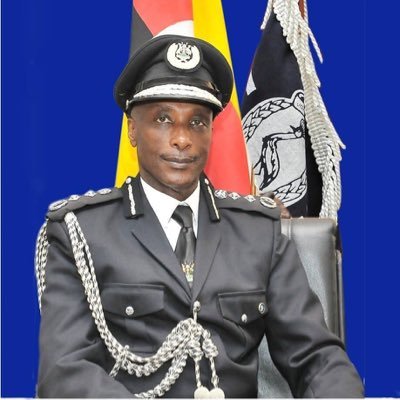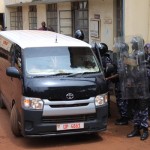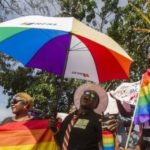Uganda Police is running a mafia syndicate akin to that described in Mario Puzo’s book the God father, a new report by the International Crisis Group shows.
Only short on naming who the God Father at the helm of the syndicate is, the report says police facilitate organized crime, run protection rackets, run drug deals and engage in turf wars.
Because of that, the report notes, a force supposed to serve and protect is instead contributing to crime.
“Allegations of criminal activity within the police undermine its legitimacy. Violent crime, including murder, is on the rise as police ability to carry out regular duties declines,” the report, released this afternoon in Germany, reads in part.
The reports indictment on Police lends credence to President Museveni’s assertion that force expected to protect people’s property and lives was infiltrated by the ‘mafia’.
It should be remembered that in March this year, while grieving with slain late Assistant Inspector General of Police, Andrew Felix Kaweesi’s family in Kulambiro, Mr Museveni instructed police Chief Gen. Kale Kayihura to clean the force of criminal gangs.
The report blames the degeneration of the erstwhile professional and somewhat effective Police on its being flagrantly politicized by the Uganda’s political leaders.
The Force, the report says, is, “now more focused on disrupting opposition activity than fighting crime, and in part [contributing] to the breakdown of local order as traditional institutions cannot cope with complex societal problems.”
The rise of informal security groups, most notably the Crime Preventers only blur responsibility lines and erode accountability.
“Politicized policing has weakened the influence of better trained and disciplined career officers.
“Police officers carry out functions that are nominally intended to preserve public order yet in reality function as the president’s first line of defense against rivals. They spend much of their time disrupting opposition activities,” the report reads.
Efforts to reach the newly appointed Police Spokesman,, Emilian Kayima, were futile as his phone went answered.
Declining state of affairs
The report also notes that Uganda is gradually slumping into a failed stated due to the inefficiencies brought about by patronage politics and a downward spiral of declining governance, poor economic performance and local insecurity over the uncertainty of the country’s political roadmap.
“President Yoweri Kaguta Museveni, in power since 1986, appears unwilling to step down; supporters and detractors alike expect him to rule until he dies or engineers a handover to a close ally or family member.
He will be 77 by the next election in 2021 and is poised to amend the constitution’s 75-year age limit, despite objections from the opposition, civil society and some in his own party,” the report says.
It is however quick to point out that despite his stay in power, President Museveni retains support, particularly in rural areas, not all of which is patronage-based.
This, it says, is because Museveni’s attachment to glory is partly because he brought in peace and economic stability after the 1980s civil wars and eventually defeating the Lord’s Resistance Army rebellion.
In order to mitigate longer-term dangers of civil strife, the report advises donors to be more sensitive to the political impact of their assistance by avoiding projects that contribute to ruling party patronage.
“For its part, President Museveni’s government should: Hold a credible National Dialogue: This should be done by revisiting plans to which the ruling party itself had agreed after the February 2016 election.
“Such a dialogue should be broad-based and focus on popular consultations with Ugandan citizens to discuss issues associated with the presidential succession and reduce fears that it might end in violence. Government should take steps to professionalize the police and improve its leadership,” the report reads.
It further says, “To stop the decline in police operational capacity and address criminality within police ranks, the government should re-institute a merit-based system of promotions in the senior command and investigate and prosecute alleged crimes by members of the force.
It also should end or reduce use of informal, non-uniformed groups, particularly the Crime Preventers and improve local governance.
International Crisis Group is Belgium based and describes itself as an independent, non-profit, non-governmental organization committed to preventing and resolving deadly
CLICK on Link
https://www.crisisgroup.org/africa/horn-africa/uganda/256-ugandas-slow-slide-crisis
Uganda Police running Mafia syndicate-Crisis report








